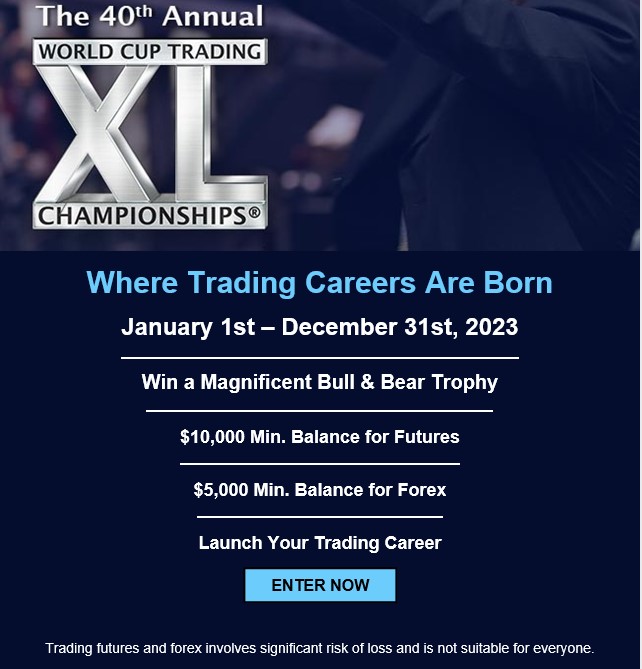Find out more more about commodities market announcements here.
In the ever-evolving world of commodities markets, staying ahead of the curve requires constant vigilance, strategic planning, and informed decision-making. One of the most critical aspects of this process is keeping an eye on upcoming commodities markets announcements. These announcements can significantly impact market trends, prices, and investor sentiment. To navigate this landscape successfully, a commodities broker can play a pivotal role in providing expertise, guidance, and actionable insights.
The Role of a Commodities Broker
A commodities broker, also known as a futures broker, serves as a link between traders and the commodities markets. Their primary role is to facilitate the buying and selling of various commodities, including agricultural products, energy resources, metals, and financial instruments. However, their responsibilities extend beyond mere transactions. A skilled commodities broker acts as a trusted advisor, offering valuable insights into market dynamics, risk management, and effective trading strategies.
Assistance from Your Commodities Broker
- Market Expertise: A competent commodities broker possesses in-depth knowledge of market trends, historical data, and global economic factors that influence commodities prices. They can interpret complex market indicators and news, helping you make informed decisions.
- Risk Management: Commodity markets are inherently volatile, and risk management is paramount. A reliable broker assists in assessing and mitigating risks through various strategies like hedging and diversification, so that your portfolio remains resilient against unexpected market fluctuations.
- Trading Strategies: Whether you’re a seasoned trader or a newcomer, your broker can help tailor trading strategies to your risk tolerance, investment goals, and market outlook. They can recommend short-term and long-term approaches that align with your unique needs.
- Data Analysis: A commodities broker has access to extensive market data and analysis tools. They can provide customized reports, technical analysis, and real-time updates to help you make timely decisions.
- Leveraging Technology: Many commodities brokers offer advanced trading platforms that enable you to execute trades swiftly and efficiently. These platforms often come with charting tools, live market data, and order execution capabilities.
- Regulatory Compliance: Commodities trading is subject to various regulatory guidelines and requirements. A knowledgeable broker ensures that your trading activities remain compliant with these regulations.
Upcoming Major Contract Announcements
Remaining vigilant about upcoming commodities market announcements is crucial for traders seeking to capitalize on potential opportunities. These announcements can include production reports, supply and demand forecasts, interest rate decisions, geopolitical events, and more. In August 2023, several major contract announcements are expected to shape the commodities landscape:
- USDA Crop Production Report (August 10): This report provides insights into the production and yield estimates for various agricultural commodities. Traders and investors closely monitor this announcement to gauge potential shifts in supply and demand dynamics.
- OPEC Meeting (Date TBA): The Organization of the Petroleum Exporting Countries (OPEC) meetings impact oil prices by determining production quotas. Traders watch for any decisions that could influence global oil supply and prices.
- Federal Reserve Interest Rate Decision (August 25): While not directly related to commodities, interest rate decisions can impact the overall market sentiment, including commodities. Changes in interest rates can affect the cost of financing for producers and impact consumer spending patterns.
- China’s Industrial Production Data (Date TBA): As a major consumer of commodities, China’s industrial production data offers insights into the health of its economy and its demand for various raw materials.
Utilizing Your Commodities Broker for Responsible Benefit
To maximize the potential benefits of upcoming commodities market announcements, it’s essential to work closely with your commodities broker in a responsible manner:
- Pre-Announcement Analysis: Collaborate with your broker to analyze potential market reactions to upcoming announcements. Discuss scenarios, risk exposure, and potential opportunities.
- Diversification: Your broker can help you diversify your portfolio across different commodities to mitigate risk. Diversification spreads risk and reduces the impact of unfavorable market movements.
- Setting Realistic Goals: Establish clear trading goals with your broker based on your risk tolerance, investment horizon, and financial objectives. This ensures that you approach trading with a well-defined strategy.
- Stay Informed: Regularly communicate with your broker to stay updated on market trends, news, and analysis. Their insights can help you make timely decisions.
- Embrace Long-Term Vision: While short-term announcements can lead to rapid market movements, a skilled commodities broker can help you see the bigger picture. Focus on long-term trends and resist making impulsive decisions based solely on short-term fluctuations.
- Risk Management Strategies: Collaborate with your broker to implement risk management strategies such as stop-loss orders, options trading, and position sizing. These measures help protect your capital and minimize potential losses.
Navigating upcoming commodities markets announcements requires a combination of market expertise, strategic planning, and responsible decision-making. A commodities broker serves as an invaluable partner in this journey, offering insights, guidance, and practical strategies to help you benefit from market opportunities while managing risks. By collaborating closely with your broker, leveraging their expertise, and approaching trading responsibly, you can navigate the dynamic commodities landscape with confidence.
Ready to start trading futures? Call 1(800)454-9572 and speak to one of our experienced, Series-3 licensed futures brokers and start your futures trading journey at E-Futures.com today.
Disclaimer – Trading Futures, Options on Futures, and retail off-exchange foreign currency transactions involves substantial risk of loss and is not suitable for all investors. Past performance is not indicative of future results. You should carefully consider whether trading is suitable for you in light of your circumstances, knowledge, and financial resources. You may lose all or more of your initial investment. Opinions, market data, and recommendations are subject to change at any time.






